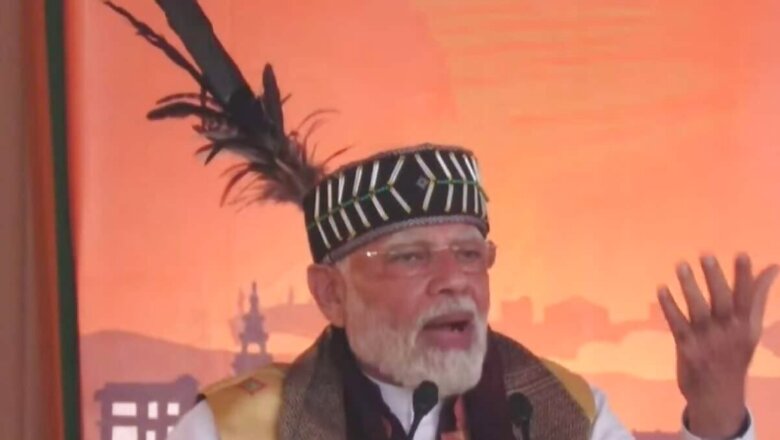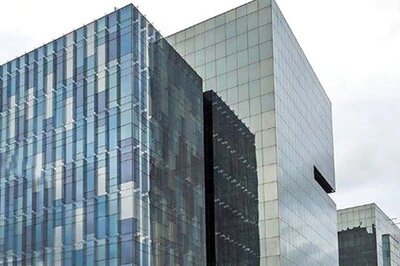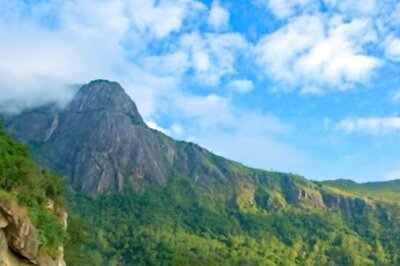
views
In a series of meetings with clusters, Prime Minister Narendra Modi will meet MPs from eight northeastern states on Monday. The meeting will be hosted by union ministers Sarbananda Sonowal and Kiren Rijiju and will also be attended by national president JP Nadda and union transport minister Nitin Gadkari.
On coming to power at the Centre, Modi had named the eight northeastern states – Assam, Arunachal Pradesh, Manipur, Meghalaya, Mizoram, Nagaland, Tripura and Sikkim – as ‘Ashtalakshmi’. Known for their distinct culture, these states also boast of unique flavours in their cuisines.
Hence, a lot of thought has gone into preparing the menu for the meeting, with representation from each of the eight states. A BJP source said each of the states want to present their speciality.
Assam, which is said to be the gateway to the northeast, is all set to serve guests its traditional joha rice, aloo pitika and sauteed dhekia xaak. Joha rice is a popular variety of rice grown in Assam, known for its delicate flavour and aroma. It is a staple in an Assamese meal as is aloo pitika, which is essentially mashed potatoes with green chillies, coriander and onion flavoured with mustard oil. Dhekia xaak, also known as fiddle fern, are popular protein-rich greens eaten as a cooked vegetable. Bilahir tok – a sweet and sour tomato chutney is also part of the meal to be served.
From Manipur, singju and chak hao kheer will be served. Singju is made out of chana powder, salt, chillies and green leafy vegetables. The kheer is a pudding made out of authentic black rice, which Manipur trades not only within India but exports across the world.
Nagaland has listed its traditional boiled vegetables for dinner, while from Mizoram, the guests shall be served purun zung bai, a dish made of some roots, including spring onions.
A typically Bengali-style mixed vegetable sabzi with panch phoron (tempering with traditional five-spice powder) is being served from Tripura, while Sikkim will add its all-time favourite vegetable momos.
Meghalaya is bringing a recipe of fried beetroot leaves to the plate alongside oying – a traditional stew with boiled vegetables spiced up with chillies and ginger – from Arunachal Pradesh with khaisa fry, a dish of fried raw bamboo shoots.
Even accompaniments like lemons and chillies are being brought from the northeast, like kaji nemu from Assam. The northeast is said to be the chilli capital of India with at least 11 different kinds among which bhut jolokia is the second spiciest chilli of the world. This variety along with the Naga king chilli are likely to make it to the table.
The northeast has been a special focus of the Narendra Modi-led government, especially with its ‘Act East’ policy. Modi has visited the region more than 58 times, which is more than any other prime minister.
The NDA MPs from the eight states will deliberate on how to keep their performance and focus up, especially at a time when Manipur has been in the grip of violence for three months now.
Apart from infrastructure, development and recognition of culture and heritage, there is also a strong representation of leaders from this region at the Centre. Five union ministers, including two cabinet ministers, are in Modi’s team – Rijiju (Arunachal Pradesh), Sonowal (Assam) Rajkumar Ranjan Singh (Manipur), Rameswar Teli (Assam) and Protima Bhowmick (Tripura).
The BJP is in power in Assam, Tripura, Arunachal Pradesh and Manipur, while it is in an alliance in Meghalaya, Nagaland and Sikkim.
Parties in the National Democratic Alliance include Sikkim Krantikari Morcha, Indigenous Peoples Front of Tripura, Mizo National Front, Asom Gana Parishad, United People’s Party Liberal, National Democratic Progressive Party, Naga People’s Front, National People’s party (NPP) among others.




















Comments
0 comment